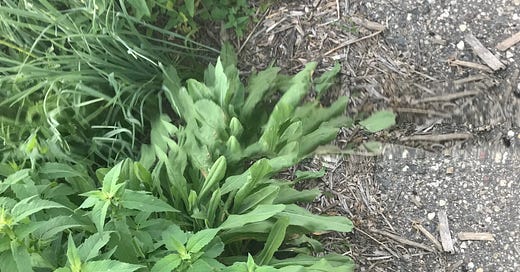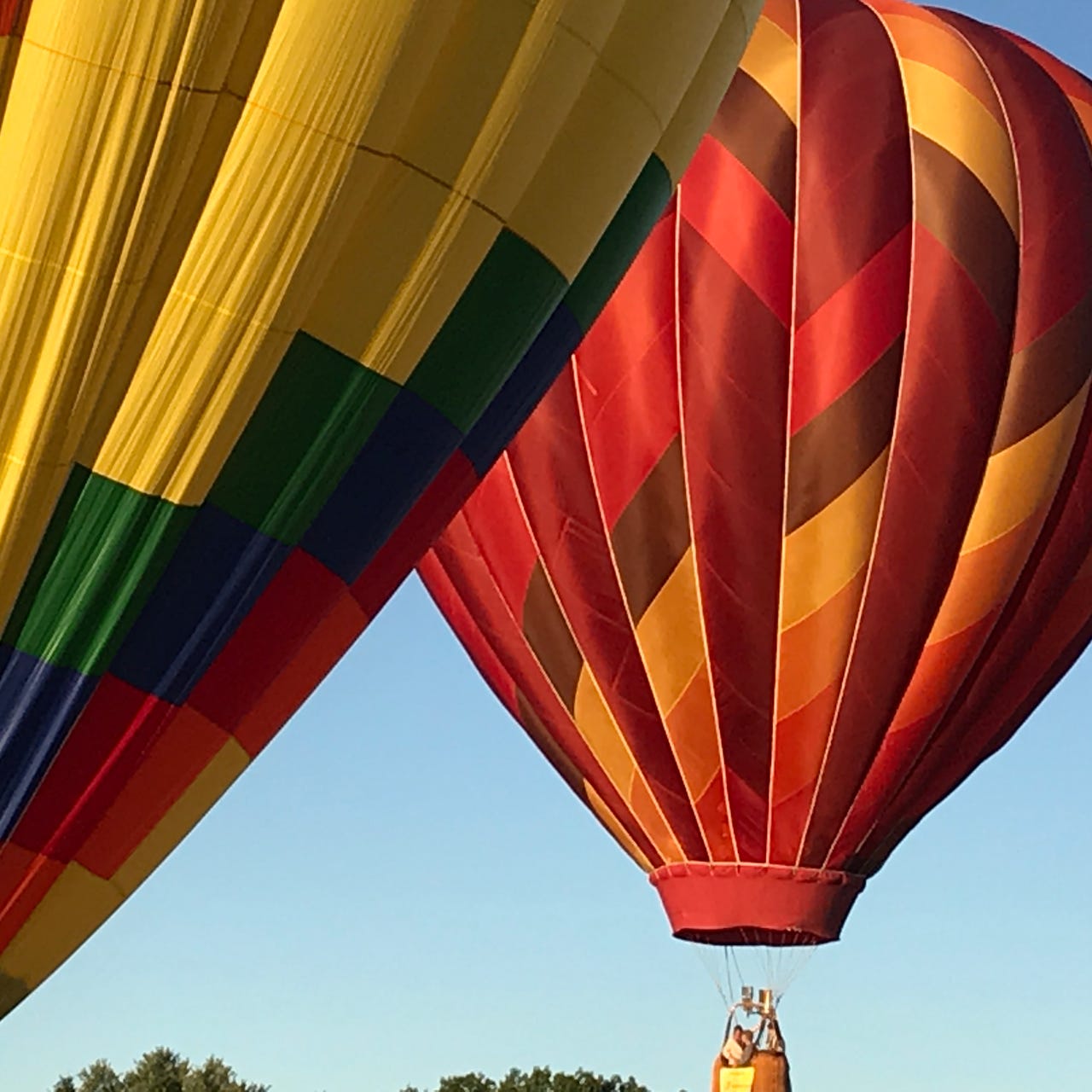At the Eloise Butler Wildflower Garden everything was thirsty. The clumps of bluish-purple indigo were so parched they could barely stand up. Indigo is an old friend. We knew it by its Latin name, baptisia, back in our garden in Stockbridge and felt mournful about the hot, dry conditions it was enduring. The individual lady’s slippers looked healthy enough, but there weren’t very many of them. I was anticipating a riot of abundant flowers on display to delight me and was aware of experiencing a brief flash of disappointment, even annoyance. Not enough rain meant less rapture for me. This was followed unexpectedly by grief. It’s an arid spring in Minnesota and everything is thirsty. The following day, we took a guided walk at the Westwood Hills Nature Center. After a half mile or so on boardwalk that wends its way through wetlands, we came to the lake. The surface was covered in a green carpet of duckweed. It seemed alarming to me. No sparkling clear lake water, no visible fish. I asked the young naturalist if the lake was diseased. She assured me that the thick green scum was part of the normal cycle of its ecosystem, but then admitted that the water level was very low and this, of course, affected the conditions at the lake.
Later that day, I had too much to drink. I’m not sure if I was drowning my sorrows as we emerged from the Canadian wildfire fog but remained in a drought. Let’s just say that a vodka gimlet at home before going out and a glass of white wine in the restaurant did me in. The effect of that grain/grape combination was unpleasant to say the least. In a word, I was drunk. Unsteady on my feet. Unable to sleep well. When I awoke during the night, I staggered toward the bathroom and slammed my bad shoulder into the wall. Got up the next morning with a headache and felt ridiculous, sophomoric, even ashamed. This was a self-generated affront to my dignity that I would have to give some thought to. Inebriated elder is not a good look.
Then something wondrous happened, a change in my awareness. The dehydration I was experiencing put me in touch with the parched indigo. Unbalanced, falling over, I knew in my body, in a way I had not known before, that sun and water in proper proportions were necessities common to all life. I knew the line of demarkation separating me from the flowers and the lake was arbitrary. That their suffering was something I was capable of understanding, but not with the limited gifts of my mind. My body and the body of the garden were unhealthy. They call that compassion.
To feel compassion, to be with suffering, has to be learned and experienced from the inside out, from the gut, from the lungs. The mind is clueless. Thich Nhat Hahn taught that in order to feel compassion for others, including non-human others, we have to start by feeling it for ourselves. He goes on to suggest that we begin with the body, with the individual organs of the body as if they are sisters and brothers that we’re connected to. That we befriend our lungs, our eyes, our feet and enter into an intimacy with them so that we’re better able to be there for them the way we would hope to be there for a sick family member. And that further, we express our gratitude for their service and their wisdom.
I am grateful to my right shoulder which is out of whack for reasons unknown to my conscious mind. It needs my loving attention. I am grateful to my skin. My skin encases all my other body parts, protecting them, keeping them safe. If my skin is thirsty from being baked by too much direct sunlight, I want to know that, attend to its dryness and care for it the way I would care for a child. I don’t need an entire wellness industry to tell me how to do this. I don’t want my body to be a bottomless opportunity for profit to be mined by the greedy. That kind of thirst does not need to be slaked. The real opportunity is for me to learn to be compassionate from the ground up, so that I experience the struggle of the indigo to survive this dry season and understand that the earth is getting hotter and everything is thirsty.
*************************************************************************************************************
Our new feature, Many Voices, will appear on the last Sunday of each month and will feature contributions from the community of paid subscribers. In June, Many Voices will welcome Baltimore-based Substack writer, Don Akchin, on being a grandfather. Please honor us by sending your thoughts and your writing.
If you are a subscriber and are having difficulty using the comment function, try logging on to your substack account at http://www.substack.com/sign-in. Use the email address linked to your substack account.
PLEASE CONSIDER UPGRADING to a paid subscription to support seventysomething and become a contributor to and a reader of Many Voices.
*************************************************************************************************************
Copies of my 2019 essay collection, Twilight Time: Aging in Amazement, are available directly from me (signed) or from Amazon or your local bookseller.
*************************************************************************************************************






I am in awe of the wisdom you have acquired and freely share.
This short essay is so well written, so smart, so soulful…so true. I agree we must connect our own bodies to our rapidly changing climate and its impact on all sentient beings. I have been swimming in the same place on Lake Ontario since 1971, so I see and feel the change—zebra mussels in the ‘80s began to filter the algae out of the lake, decreasing the food for small fish and making the water so clear the sun gets through. The native grass is gone, and I no longer swim over schools of fish. The Lake is warming—last year no ice buildup—so more erosion from wild winter waves pounding the shoreline.
My body carries the memories of a healthier lake, and it anticipates increasing degradation of this amazing body of fresh water. Together, the 5 Great Lakes hold 20% of the fresh water on Earth. You now have glorious Superior, the biggest and least degraded, nearby. Love her.